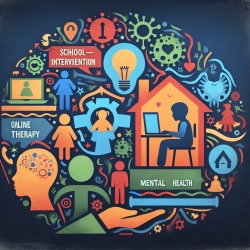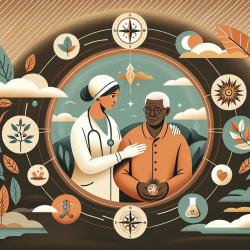Revolutionizing Medical Education: The Biopsychosocial Model
The traditional biomedical model, which focuses primarily on biological factors, has been the cornerstone of medical education for decades. However, as chronic diseases linked to lifestyle and environmental factors continue to rise, there is a pressing need to adopt a more holistic approach to healthcare. Enter the Biopsychosocial (BPS) Model—a comprehensive framework that integrates biological, psychological, and social factors to provide a more complete understanding of health and disease.
The Growing Trend of the BPS Model in Medical Education
According to the research article A Review of 21st Century Utility of a Biopsychosocial Model in United States Medical School Education, there has been a notable increase in the adoption of the BPS model in medical education since the 1970s. This trend has gained momentum, particularly since 2000, as more medical schools recognize the importance of addressing psychosocial and behavioral factors in addition to biological ones.
Why the BPS Model Matters
Chronic diseases such as obesity, cardiovascular disease, and diabetes are often rooted in complex interactions between lifestyle choices, environmental conditions, and biological predispositions. The BPS model acknowledges these interactions and equips healthcare providers with the tools to address them effectively. By understanding the psychological and social determinants of health, practitioners can offer more personalized and effective care, ultimately leading to better patient outcomes.
Current Implementation in Medical Schools
Despite its potential, the BPS model is currently utilized in the curricula of only a handful of medical schools in the United States, including Florida State University College of Medicine and the University of California San Francisco School of Medicine. These institutions have integrated the BPS model through various educational methods, such as lectures, clinical experiences, and small group discussions, to ensure that future doctors are well-prepared to address the multifaceted nature of modern diseases.
Challenges and Opportunities
While the BPS model holds promise for improving healthcare outcomes, its implementation faces several challenges. Many physicians report a lack of training in addressing biopsychosocial factors, which can lead to feelings of inadequacy in managing these issues. Additionally, time constraints and inadequate reimbursement for psychosocial interventions further hinder the model's widespread adoption.
However, the increasing body of research supporting the BPS model's efficacy suggests that further integration into medical education is not only possible but necessary. By fostering a more comprehensive understanding of health determinants, medical schools can produce healthcare providers who are better equipped to tackle the complex challenges of 21st-century healthcare.
Encouraging Further Research and Implementation
To advance the integration of the BPS model in medical education, it is crucial to encourage further research and exploration of its benefits. Medical schools should consider developing curricula that incorporate the BPS model, allowing students to gain practical experience in addressing the interplay between biological, psychological, and social factors.
For practitioners looking to enhance their skills, embracing the BPS model can lead to more effective patient care and improved health outcomes. By staying informed about the latest research and developments in this area, healthcare providers can continue to evolve their practice and meet the needs of their patients.
To read the original research paper, please follow this link: A Review of 21st Century Utility of a Biopsychosocial Model in United States Medical School Education.










